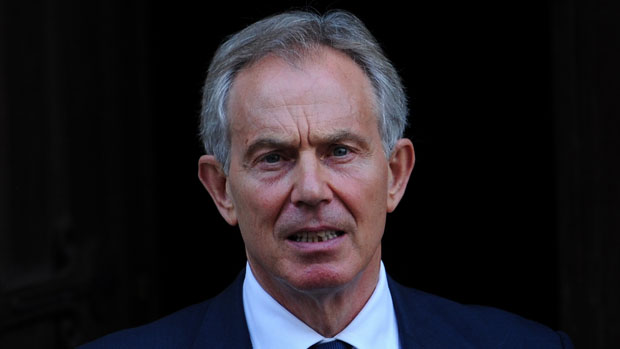Tony Blair: force is necessary to combat Islamic extremism
Former prime minister greeted with a standing ovation at closed-door Republican strategy meeting

A free daily email with the biggest news stories of the day – and the best features from TheWeek.com
You are now subscribed
Your newsletter sign-up was successful
Tony Blair has told a meeting of senior Republicans in the US that force is necessary to combat Islamic extremism.
Speaking at a closed door strategy meeting in Pennsylvania, Blair said a stronger approach was required in the fight against the "substantial minority" of Muslims who support terrorism.
The former prime minister was greeted with a standing ovation by high-level Republicans who argue that Washington's response to the terror threat has been too limited, a source told The Guardian.
The Week
Escape your echo chamber. Get the facts behind the news, plus analysis from multiple perspectives.

Sign up for The Week's Free Newsletters
From our morning news briefing to a weekly Good News Newsletter, get the best of The Week delivered directly to your inbox.
From our morning news briefing to a weekly Good News Newsletter, get the best of The Week delivered directly to your inbox.
A spokesperson confirmed that Blair discussed the "Middle East peace process, as well as issues relating to the wider region", but declined to comment further.
The former Labour PM's visit coincides with that of current Prime Minister, David Cameron, who will meet Barack Obama at the White House, with the recent terror attacks in France expected to feature high on the agenda.
Ahead of their "working dinner", the two leaders vowed to defeat terrorism and would said they would not allow anyone to "muzzle free speech", the BBC reports.
However, it is the visit of Blair that has generated more interest among Americans, and he has "struck a more confrontational tone" than Cameron, argues The Guardian's Dan Roberts.
A free daily email with the biggest news stories of the day – and the best features from TheWeek.com
One witness to his speech reports that Blair described radical Islam as a perverted ideology and hostile to "us and our values". He also argued that the West would not be able to beat extremism without "allies within Islam itself".
Blair, whose tenure as PM was defined by the Iraq invasion in 2003, told his audience that "if you topple dictators, you release other forces that have to be dealt with," says Roberts.
Last year Blair urged the government not to rule out sending the British forces to fight against Islamic State in Iraq and Syria. "Unless you're prepared to fight these people on the ground, you may contain them but you won't defeat them," he said.